American Writers Group Condemns Arrest Of Iranian Singer

PEN America, an organization that defends writers, journalists and protects freedom of artistic expression, has condemned the arrest of Iranian musician Mehdi Yarrahi.

PEN America, an organization that defends writers, journalists and protects freedom of artistic expression, has condemned the arrest of Iranian musician Mehdi Yarrahi.
In a statement released online, the organization called for Yarrahi’s immediate release and for all charges to be dropped against him.
Yarrahi was arrested after the release of his song ‘Your Headscarf’, a poignant critique of Iran's enduring mandatory hijab policy.
Simultaneously, the Iranian government announced a ban on "cultural activists" who they considered to be “acting against the nation's interests” including female artists and actors who remove their hijabs.
“These bans carried out against cultural activists serve as a grim reminder of the Iranian government’s continued campaign to suppress any artistic expression that dares to challenge the status quo.
The legal action taken against Mehdi Yarrahi is indicative of the Iranian regime’s systematic, brutal repression of democratic free expression. We stand in solidarity with Iran’s artists and cultural workers defending fundamental rights and freedoms, and demand that all charges against Yarrahi be dropped,” said Julie Trebault, director of Artists at Risk Connection.
Yarrahi's arrest is the latest development in a series of repressive measures imposed by the Iranian government, coinciding with the approaching one-year anniversary of the death of Amini, in police custody following her arrest for not wearing the mandatory headscarf.
Earlier this month, Iranian filmmaker Saeed Roustayi was sentenced to six months in prison for screening his award-winning film Leila’s Brothers at the Cannes Film Festival. Other prominent figures such as political rapper Toomaj Salehi and actress Taraneh Alidoosti have also faced persecution for their involvement in the September 2022 protests.
PEN America’s latest Freedom to Write Index — an annual count of writers in prison worldwide — found that Iran is the largest jailer of women writers globally.
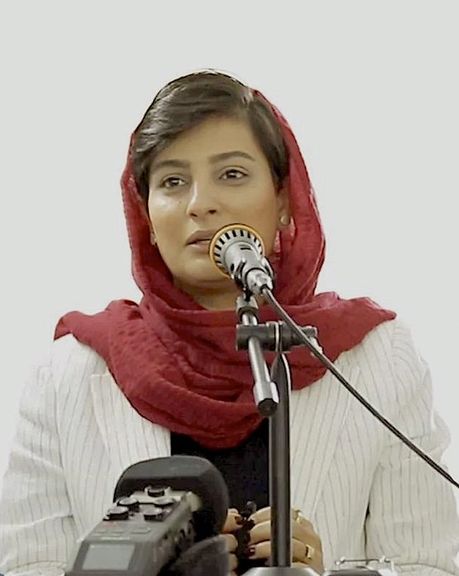
The husband of a female political prisoner in Evin Prison has revealed that his wife is being denied emergency medical treatment despite ongoing pressure from hospitals.
Saeed Parsaie, the husband of Elaheh Mohammadi, has reported that despite the insistence of the Evin Prison physician to conduct emergency tests over the past two months, she is yet to receive medical attention.
"It's been nearly two months since the Evin Prison physician registered Elaheh for an emergency ultrasound. During this time, despite five family-hospital coordination efforts, the doctor refrained from examining Elaheh,” Parsaie wrote on his social media accounts.
Mohammadi, a journalist who was one of the first to report the death in custody of Mahsa Amini in September 2022 was arrested and jailed along with Niloufar Hamedi. The pair, who worked for the reformist Iranian newspapers Shargh and Ham-Mihan, were detained for 300 days because the regime held them responsible for the nationwide protests that erupted after Amini’s death.
Last week, the Workers' Syndicate of Tehran and Suburbs Bus Company reported that Reza Shahabi, a labor activist imprisoned in Evin, has also been deprived of medical treatment. According to the report, Shahabi's medical case was referred to the medical commission and his treating physician emphasized that he "definitely needs surgery."
Several other female prisoners who have been released from Evin have spoken out about the mistreatment by prison authorities and said they had also faced health issues and were denied access to medical facilities. They also complained about being deprived of contacting their families
Parsaie also referred to this in his social media posts, saying that the women's ward telephone in Evin Prison was disconnected during the weekends. He said that there are only three telephone lines for over 40 women in the women's ward of Evin Prison, all of which are of poor quality. This is just another way that the regime chooses to harass and mistreat political prisoners in Iran.
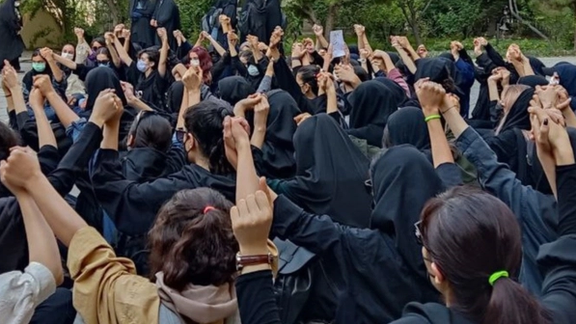
In the midst of an ongoing debate over the expulsion of university professors, student unions across Iran have voiced their protest against gender segregation in classrooms.
Iran's Student Union Council issued a statement on Monday, in response to a letter signed by Abolfazl Ghafari, the Deputy for Cultural, Social, and Student Affairs at Ferdowsi University in Mashhad advocating for the introduction of gender segregation.
The memo has also been shared with the heads of other faculties within the institution, signaling a broader institutional shift towards segregation. The students’ statement underscored the divisive nature of gender separation and rallied against it.
The discourse on gender segregation in Iranian universities is not new, having spanned several decades and permeated various aspects of campus life, including dormitories, library halls, and sports facilities. Furthermore, many single-gender universities have been established in recent years.
While Supreme Leader Ali Khamenei expressed opposition to physically partitioning classrooms in the late 1990s, he has more recently advocated for the Islamization of universities and the avoidance of mixed-gender interactions.
As the anniversary of last year’s protests approaches and nationwide demonstrations loom, the government has formally launched the implementation of gender segregation within university classrooms.
Simultaneously, the expulsion of professors, summoning of students, and issuance of suspension and expulsion orders across various universities continues. Some protesting students remain under arrest and trial, further deepening the tensions in the field of higher education.
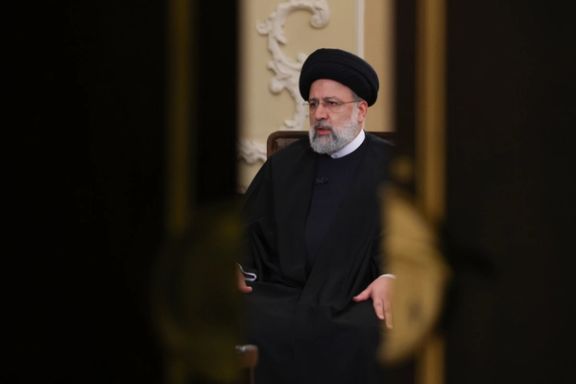
Iran's Minister of Culture has praised President Raisi’s character as a trusted leader of the Islamic Republic, saying he has been “tested across various critical junctures.”
Mohammad-Mehdi Esmaeili, speaking in support of the president, also highlighted that during his youth, Raisi was entrusted with numerous judicial missions by the late Ruhollah Khomeini, the founding leader of the Islamic Republic.
President Raisi is facing domestic and international scrutiny due to his alleged involvement in orchestrating mass prison executions in 1988. Many of these executions targeted individuals associated with opposition groups such as the Mujahedin-e Khalq Organization (MEK), as well as leftist, secular, and Kurdish organizations.
Raisi was a member of an ad hoc judicial committee colloquially known as the "Death Commission." This committee was responsible for deciding the fates of prisoners during summary trials that were held in secret. While Raisi has denied direct involvement in issuing sentences, he has defended the actions against the MEK, citing their history of “violence” as justification.
Notably, some prisoners had been previously released from incarceration, only to be rearrested and retried during the execution spree, which was also referred to as a prison purge. The intention behind these retrials was to ensure prisoners fully denounced the MEK and demonstrated repentance.
The precise number of prisoners executed during the 1988 purges remains uncertain. However, according to Amnesty International, the Iranian authorities "forcibly disappeared" and "extrajudicially executed" an estimated 5,000 individuals between July and September 1988.
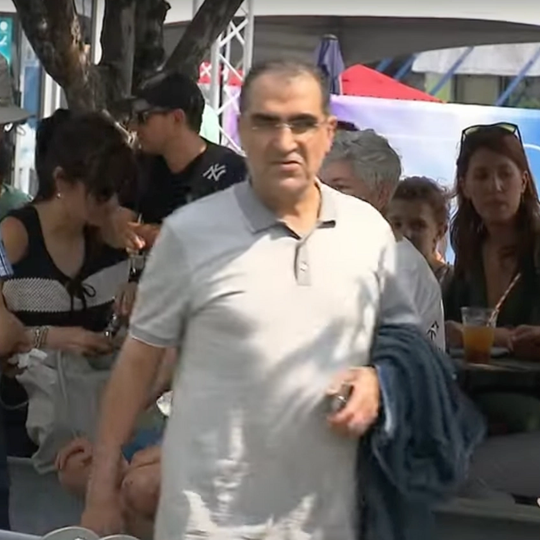
Reuters - Canada will deny temporary residency to Iran's former health minister Hassan Ghazizadeh Hashemi, Canadian Immigration Minister Marc Miller said on Monday.
He cited Tehran's human rights record, after Hashemi was reportedly seen in Montreal.
"Based on an assessment of the relevant facts recently brought to my attention, I have exercised my authority under s. 22.1 of the IRPA to prevent Mr. Seyed Hassan Ghazizadeh Hashemi from becoming a temporary resident of Canada for the maximum period of 36 months," Miller said in a post on X, formerly Twitter.
Section 22 of the Immigration and Refugee Protection Act gives the Canadian immigration minister the authority to deny temporary residency to a foreign national for up to three years.
"The decision itself, as communicated to the individual, is tied to Iran's disregard for human rights," Miller added, without disclosing Hashemi's location, whether he had sought residency, or how the information was conveyed.
Hashemi served as the minister of health for the Iranian government from 2013 to 2019 under former President Hassan Rouhani. He was widely seen as the key official behind a 2014 launch of a plan for universal medical insurance.
Iran International, a US-based news outlet focused on the Iranian diaspora, reported earlier in August that Hashemi was spotted in Montreal. It cited screenshots from a promotional video for the Quebec province's tourism industry. Reuters could not independently verify the presence of Hashemi in Montreal.
Canada cut diplomatic ties with Iran in 2012 and listed the country as a supporter of extremism. It also recently imposed sanctions on Iran over alleged human rights abuses and the killing of Mahsa Amini, a woman who died in the custody of Iran's morality police that enforced strict dress codes.
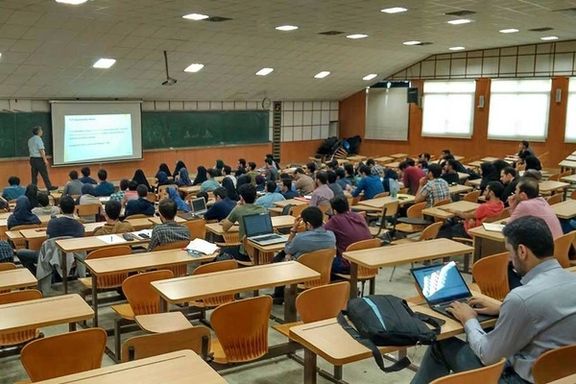
Purging dissident professors in Iran, which commenced shortly after the protests of the Woman, Life, Freedom movement last September, has intensified in recent days.
News of the ongoing purge angered the public after Professor Ali Sharifi-Zarchi announced on X on August 26 that Sharif University of Technology had expelled him.
Sharifi-Zarchi, a member of the bioinformatics and AI Faculty of the university's computer engineering department, supported dissident students during the months-long nationwide protests sparked by Mahsa Amini's death in custody on September 16 last year.
In the past few days, the university has also invited three hardliner figures, including Amir-Hossein Sabeti, a television presenter, to teach Islamic subjects at the university.

Observers say the dismissal of dissident professors may be a preemptive move to reduce the chances of campus protests on the first anniversary of Amini's death.
Iran’s former nuclear chief Ali-Akbar Salehi, who is also the deputy head of the Academy of Sciences of the Islamic Republic of Iran, spoke to the reformist Jamaran news website about Sharifi-Zarchi's expulsion on Monday. He said the academic level of universities will deteriorate due to the "mass injection" of unqualified academicians replacing the expelled professors. "It can no longer be called a university!" he exclaimed.
Salehi added that he had tried to contact the university's chancellor and had sent messages to him, stating that decisions of such sensitivity should be made with tolerance and careful consideration, even if Sharifi-Zarchi had not fully abided by some of the university's rules and regulations, as they claim.
In the past couple of days, at least ten university professors from Sharif, Allameh Tabatabai, and Tehran universities were either sacked or suspended. In April, nine professors from Tehran Azad University, who had openly criticized the regime and its policies, were similarly purged through forced early retirement.
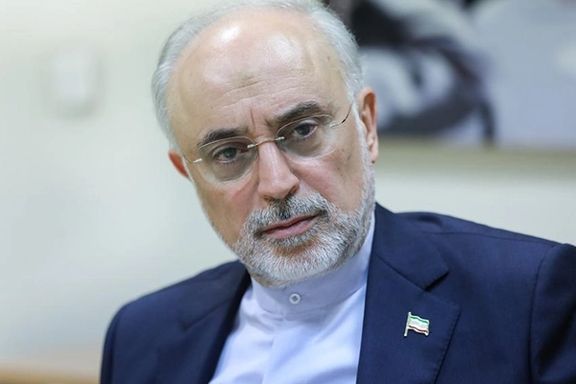
According to the reformist Etemad newspaper, from 2006 to the end of August 2023, 157 tenured professors have been dismissed, forced into retirement, or banned from teaching due to their critical and dissenting views, as part of a broader initiative to cleanse universities of critics of the hardline establishment.
During the presidency of Mahmoud Ahmadinejad (2005-2013), who was closely aligned with hardliners, the regime also attempted to employ professors who were ideologically aligned with the hardline and religious establishment.
The intensification of the purge appears to have caused delays in the start of the academic term in some universities, with several institutions potentially resorting to online lectures.
Ameneh Aali, a psychology professor at Allameh Tabatabai University, who is among those sacked, told the Didban-e Iran news website on Saturday that she was informed of her expulsion over the phone and was not provided a reason for the termination of her contract with the university.
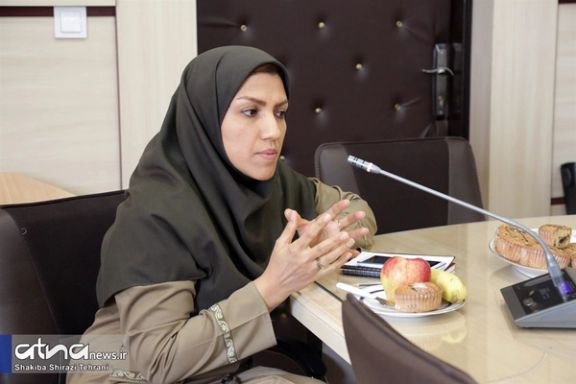
She asserted that she was dismissed because she had signed statements supporting protesting students last year, participated in their sit-ins, and objected to the suspension of students.
While the Ministry of Higher Education has not commented on the issue, the Interior Ministry released a statement on Monday describing criticism of the expulsion of academics as "media propaganda" and asserting that the Higher Education Ministry had taken "revolutionary action."
The Interior Ministry's statement also accused the sacked professors, who had opposed the crackdown on students and supported those who were arrested or suspended, of "political immorality and media show-off," and of "defiling" the academic arena with their "factional and even anti-national views."
In a statement on Sunday, the National Union of Iranian University Professors criticized the "profuse meddling" of security bodies in academic affairs and warned about the "gradual decline" of universities.






